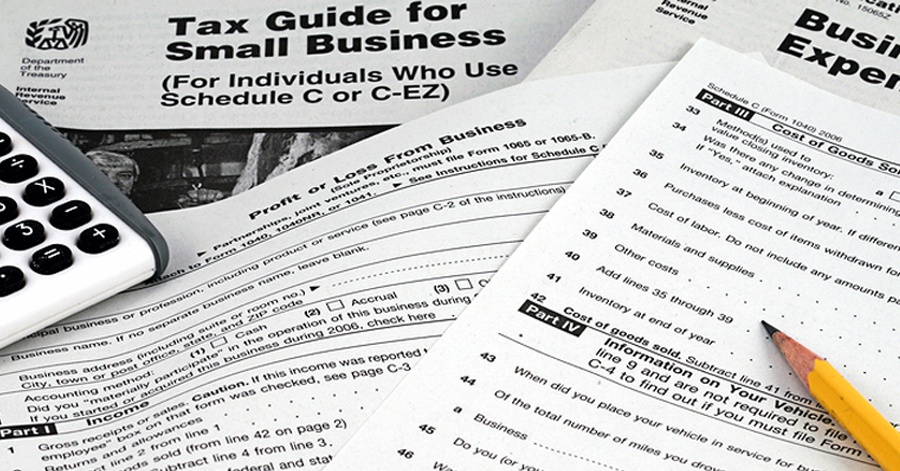While some tax planning strategies for small businesses may be aimed at the small business itself, others can be aimed at the owner's individual tax situation. Regardless of how complex or simple the strategy is, tax planning for small businesses should revolve around:
- Minimizing the amount of taxable income
- Managing when the taxes must be paid
- Lowering the overall rate of tax
- Controlling the effects of the Alternative Minimum tax
- Claiming any applicable tax credits
Continue reading for more about alternative tax planning strategies for small business commonly used by experienced certified public accountants in Long Island.
Maximizing Business Entertainment Expenses
Did you know you may be able to deduct certain entertainment expenses? However, there are a few key guidelines you must consider.
What Qualifies as Business Entertainment Expense?
In order for the entertainment expense to qualify for the deduction, business has to be discussed before, during, and after the meal. It's also important the environment is conducive to business discussions.
For example, you wouldn't be able to deduct a trip to Six Flags with your family because the environment isn't conducive to business, and you probably would spend more time screaming rather than discussing business. Other examples of less than prime locations to use the business entertainment expense deduction are:
- Ski trips
- Sporting events
- Golf courses
- Hunting trips
When using this deduction, you should always keep excellent documentation, such as:
- The amount of the expense
- Place and time of the expense
- The business purpose of the expense
Section 179 Tax Planning Strategies for Small Businesses
Section 179 is one of the most beneficial tax planning strategies for small businesses. It allows you to deduct the full purchase price of qualifying equipment, vehicles, and or software financed or purchased during the year from your gross income.
This deduction can be especially helpful if you purchase qualifying vehicles. You may be able to write off up to $25,000 of the cost of a new or used heavy SUV or business truck under Section 179 instant depreciation.
Which Vehicles Qualify for Section 179 & Section 179 Bonus Depreciation?
If you purchased a new qualifying business vehicle, you may be eligible for the 50% first-year Bonus Depreciation. To qualify for Section 179, you must purchase a "heavy" vehicle, which refers to a vehicle with a manufacturer's gross vehicle rating (GVWR) more than 6,000 pounds. You are also required to use the vehicle for more than 50% of your business. You can typically find your vehicle's GVWR on the label located on the interior edge of the driver's side door.
Will Lighter, Passenger Vehicles Qualify for Section 179?
Yes, but Section 179 expense deduction and Bonus Depreciation for lighter vehicles is much stingier. While the maximum write-off for lighter vehicles is limited to $11,160 for trucks and vans, you can write off up to $11,060 for a car purchase. Exceptions include the following vehicles:
- Hearse or ambulance used in your business
- Transport vans, taxis, and other vehicles used to transport property or people for hire
- Qualified nonpersonal use vehicles modified specifically for business.
Will Crossovers and SUVs Qualify for Section 179?
Yes, crossovers and SUVs can qualify for Section 179. Vehicles with a GVWR that is above 6,000 lbs, but not more than 14,000 can qualify for expensing up to $25,000. Similar to other vehicles covered under Section 179, the vehicle must have been placed in use and financed before December 31, 2017 as well as meet other conditions.
Home Office Expense
While the home office deduction can be relatively difficult to understand, it's one of the most-often used tax planning strategies for small businesses and is almost always worth the trouble! To use this deduction, your home office must be the principal place of doing business or where you meet clients and customers.
Simplified Method vs Regular Method
If you do qualify for the home office expense deduction, you can use the regular method or simplified method to claim your deduction:
Regular Method
If you choose the regular method, your deduction may include costs you pay for your home or the amount of the rent as well as mortgage interest, utilities, taxes, and other home office business expenses. Under the regular method, the amount of the deduction typically depends on the percentage of the home used for business.
Simplified Option
With the simplified option, you must multiply the allowable square footage of your home office by the standard rate of $5. Although the maximum square footage is 300, this method saves time and makes it easier for your recordkeeping.
Contact Dennehy CPA for Tax Planning Strategies for Small Businesses
As a small business owner, time is of the essence! And tax planning for your small business is undoubtedly a full time job. Instead of trying to manage tax planning for your small business, trust the experts at Dennehy CPA.
At John F. Dennehy CPA, we are a team of certified public accountants who service business clients throughout the Long Island area. We provide a full suite of comprehensive services, including:
Contact John F. Dennehy CPA today for a free consultation on tax planning strategies for small businesses.





